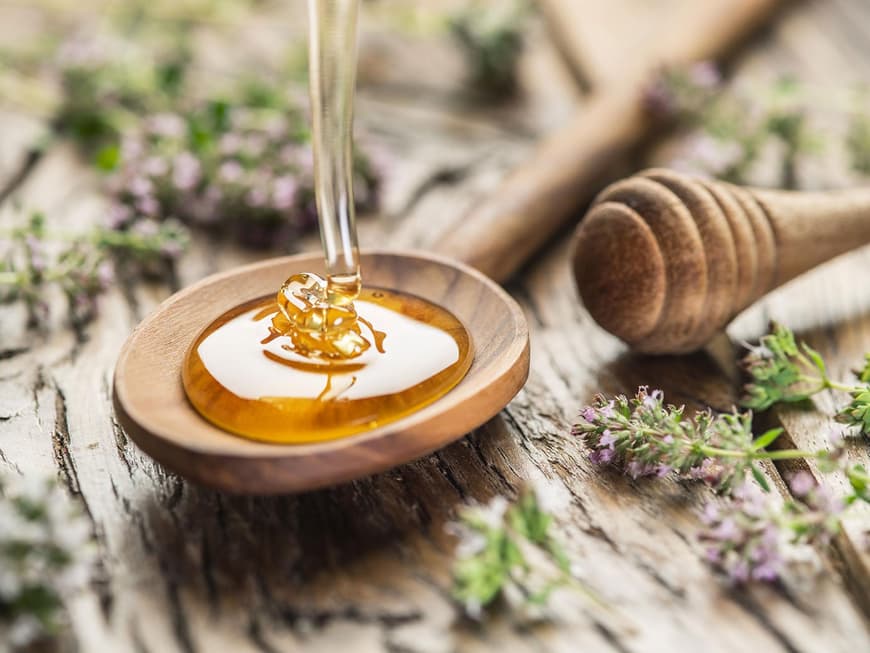
Sugar is a drug, a sweet poison and is addictive. Honey, on the other hand, is a safe sweetener. It is also super healthy, helps with sore throats and protects against illnesses thanks to its ingredients. This message is not only preached over and over again on the internet. But the fact is: the yellow gold consists of 80 percent glucose and fructose. The remaining 20 percent is simply water. The sweet substance does indeed contain minerals such as potassium and magnesium, anti-inflammatory enzymes and vitamins C, B1 and B2 - but the proportion is so small that it doesn't really play a major role. "In terms of nutritional physiology, honey is just like sugar," says nutritionist Antje Gahl from the German Nutrition Society. Because: 100 grams of normal household sugar contain 380 calories, 100 grams of honey around 300.
It all depends on the origin and processing
However, a distinction should be made between industrially produced and natural honey. In the case of the former, the industry mixes different varieties - including from non-EU countries - and heats the mixture to make the honey nice and creamy. However, this destroys the ingredients - just like the famous hot milk with honey. What's more, the sweet substance could also come from China or America or from the nectar of genetically modified plants. German beekeeper's honey, on the other hand, is natural, comes from Germany and is bottled without any intermediate steps.
Honey or sugar - it's a question of taste
Conclusion: honey is not necessarily better than sugar. It just has a different flavor - it all depends on where exactly the bees have nibbled the nectar. You can certainly use it as a sugar substitute - but you don't really save any calories. It's all a question of taste ...
Bees in dramatic danger
They will soon be buzzing and humming no more. This figure is alarming: according to a study, the number of insects in Germany has fallen dramatically since 1989, with researchers even recording a 76 percent decline in 63 nature reserves. If so many flying creatures such as beetles, wasps and bees continue to disappear, this will have dramatic consequences for nature, animals and ultimately for us humans: plants will no longer be pollinated and will not be able to reproduce, meaning there will no longer be sufficient harvests. Birds will no longer find enough food, as around 60 percent of all bird species feed on insects. High time to do something. Even small measures can help.
What we can all do to prevent insect mortality
If you have a garden, you should not use pesticides, focus on diversity and not cut down all the plants in the fall. At least parts of the lawn should only be mowed infrequently so that meadows with wild flowers can develop. Balcony owners are also better off planting wildflowers such as columbine, bellflower or cranesbill instead of ornamental flowers such as geraniums or primroses. They provide more food for insects. A bowl filled with stones and a little water provides them with liquid in very dry regions. So everyone can do something to bring back our flying friends.
This is how useful honey is:
Make your own hair treatment with honey
Care for fingernails with honey
Honey as a home remedy for constipation
